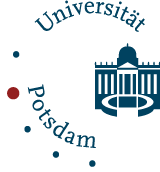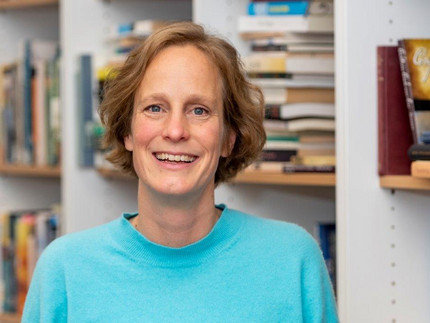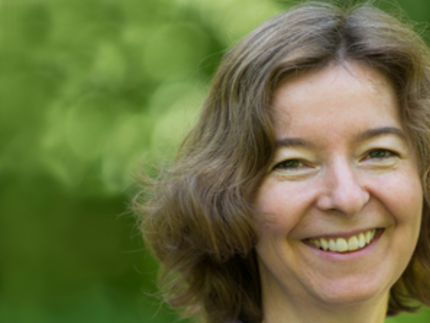Anja Schwarz
I am a German professor of cultural studies at the University of Potsdam in Germany with a background in memory studies and postcolonial studies. I spent significant periods of my undergraduate and postgraduate training in Australia (especially at the The University of Melbourne), and much of my research and teaching focuses on the South Pacific (Australia, Polynesia and Aotearoa New Zealand). To see where I've published, click here.
This work has focused on two main fields over the past decade: Together with my colleague Lars Eckstein I have undertaken reserch into the Polynesian navigational knowledge conveyed by Ra‘iātean airoi and tau‘a, Tupaia through his 1769 map of Oceania. In 2022, this work culminated in the Te Ara Vaka Moana Conference, when we invited Pacific ancestral navigators and boatbuilders to Berlin to bring knowledge, reverence and life to the oceanic vessels on display in Berlin’s ethnographic museum, the Humboldt Forum. Click here for more information.
Another strand of my research and teaching concerns Germany's implication in the history and ongoing unfolding of Australian settler colonialism through its institutions, emigration histories and cultural imaginaries. In this context, I have been involved in research projects on Australian and German memory cultures around the settler-funded Prussian explorer Ludwig Leichhardt, and on German-Australian colonial entanglements. Together with Dr Eva Bischoff from the University of Trier, I am currently co-directing the collaborative and inter-institutional research project ‘Berlin’s Australian Archive’, funded by the German Lost Art Foundation, which focuses on Berlin’s extensive natural history collections from Australia. Working with colleagues in Australia, we are trying to learn more about the important role played by First Peoples in the formation of these collections, whose labour and knowledge was extracted by German-speaking naturalists. To find out more about the project, click here.
Nicole Waller
I am a German professor of American studies at the University of Potsdam in Germany. I was initially trained in Caribbean studies, Atlantic studies, and postcolonial studies. I have also studied American stereotypes about Islam. In the last 10 years, L/land relations have become a central concern of my work.
In my research, I have looked at intersections between ecocriticism and postcolonialism and engaged with Black and Indigenous studies’ critiques of posthumanism for its lack of post-and decolonial perspectives. Together with my Potsdam colleagues Anke Bartels, Lars Eckstein, and Dirk Wiemann, I have written a monograph on Anglophone postcolonial literatures which addresses the intersections of postcolonialism with settler colonial studies, Indigenous studies, and ecocriticism. I have also worked on Indigenous sovereignty and stewardship, publishing on Canadian Inuit interventions into discussions about sovereignty in the ‘Canadian Arctic Archipelago’. I have studied, taught about, and published on Black Geographies, including its relation to Indigenous decolonization efforts. In collaboration with Jens Temmen, I organized a conference and a special journal forum on ‘American Territorialities’, a project that brought together researchers critically investigating territorial discourses of the US nation-state, as well as the counter-discourses of peoples and populations placed under US sovereignty but relating to L/land and water otherwise. A list of my selected publications can be found here: https://www.uni-potsdam.de/de/iaa-amlc/academic-staff/prof-dr-nicole-waller
In my teaching, I have recently looked with my students at settler decolonization and the possibilities of collaboration between Black diasporic populations, settlers, and Indigenous peoples in (zoom) conversation with invited speakers from the fields of Indigenous and Black studies on Turtle Island.
PhD supervision
Together with colleagues from Potsdam and Berlin, we have been supervising dissertation projects in the funded Research Training Group minor cosmopolitanisms since 2016. This means working with (by now) three generations of doctoral students and with fellow supervisors at our international partner universities. In doing so, we have developed expertise in facilitating academic dialogue between different research traditions, and remain committed to supporting early career researchers for whom the university can be a challenging environment.
What we have done so far to prepare the project
The project will begin on January 1, 2025. Anja and Nicole have been in regular communication with Prof. Renae Watchman and Prof. Lynette Russell to prepare for our joint supervision of two PhD projects, jointly organized workshops on Turtle Island, in Australia, and Germany, and the Mercator visiting professorships of Renae Watchman and Lynette Russell in Berlin/Potsdam.
In the past year, we have been in conversation about our project with a number of colleagues in Indigenous studies. One of the results of this interaction is that we are currently putting together an advisory board for the project.
In August 2022, Anja and Nicole participated in the one-week workshop “Let’s Become Story Ready: Decolonizing and Indigenizing European and Migration Studies through Indigenous Storywork” at UBC in Canada. Based on Jo-ann Archibald’s (Sto:lo Nation) principles of Indigenous storywork, the workshop brought together Indigenous and settler participants and provided an important foundation for further collaborations. We also partook in the Indigenous-led decolonization training “Cultural Protocols, Empathy and Safety” conducted by Nahanee Creative.
Anja and Nicole have started working on one aspect of our joint research: the examination of representations of German settlers in novels written by Indigenous authors and films made by Indigenous directors in order to analyze the role ascribed to a settler population that is often ‘under the radar’ in histories and literary representations of settler colonialism on Turtle Island and in Australia. We hope that this project part will help us to better understand what it can mean to think about and support decolonization on Turtle Island and in Australia from Germany. Germans have heavily participated in settler colonialism despite the fact that the German state has not acted as an official colonizer on Turtle Island or in Australia. A large number of German immigrants to Turtle Island and Australia have profited from dispossessed Indigenous Land that was made available to them by the settler colonial nation states. Their migration contributed to a German colonial imaginary that envisaged Germans as the ‘better colonizers’ (Schwarz 2018b) and projected ‘Indianthusiasms’ (Lutz, Strelczyk and Watchman) and notions of noble Aboriginality onto Indigenous peoples and their Land/Country. Our project will address these histories as points of entanglement that necessarily shape our own approach to the collaborative potential of settler decolonization in both contexts. We also hope to create more awareness for these complicities in German debates about decolonization, which often remain silent about them.


